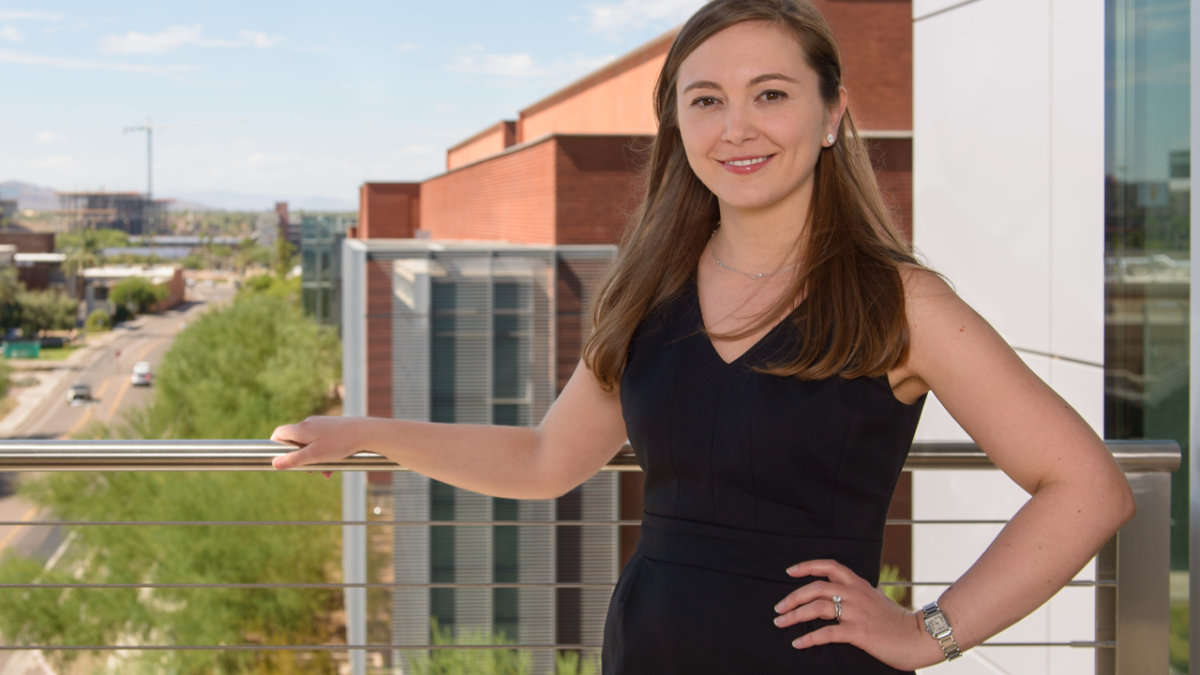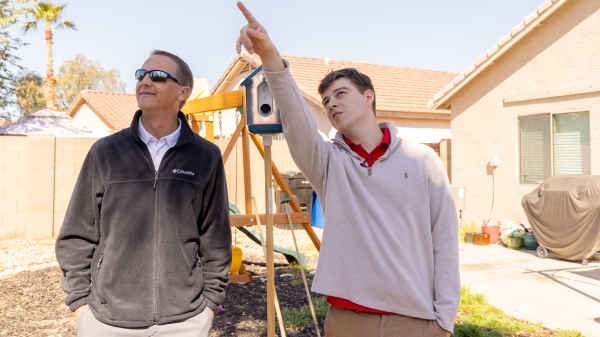Solving the unsolvable problem
ASU Global Security Initiative director Nadya Bliss on applying innovation to the world's toughest security challenges

“Bound to fail.” “Impossible.” “Can’t be done.”
Nadya Bliss has been hearing these phrases since she was a 5-year-old trying out for ballet in the former Soviet Union. These same phrases are used to describe many of the current seemingly unsolvable “wicked” problems, ranging from information security to the spread of infectious disease.
As the director of Arizona State University’s Global Security Initiative and professor of practice at ASU’s Ira A. Fulton Schools of Engineering, Bliss is not deterred by personal discouragement, or the claim that complex problems are impossible to solve. Instead, she embraces complexity and integrates expertise from a broad range of fields and disciplines.
Here, she speaks on solving the unsolvable problem, and how that's not as much of a contradiction as it might appear.
Bliss’ talk is part of the ASU KEDtalks series. Short for Knowledge Enterprise Development talks, KEDtalks aim to spark ideas, indulge curiosity, and inspire action by highlighting ASU scientists, humanists, social scientists and artists who are driven to find solutions to the universe’s grandest challenges. Tune in monthly to research.asu.edu/kedtalks to discover why space is the next economic frontier, how the next educational revolution will come about, and more.
More Science and technology

Making magic happen: Engineering and designing theme parks
The themed entertainment industry is widespread and diverse, encompassing everything from theme parks to aquariums, zoos, water parks, museums and more. The Theme Park Engineering and Design…

AI-equipped feeders allow ASU Online students to study bird behavior remotely
ASU Online students are participating in a research opportunity that's for the birds — literally. Online Bird Buddies is a project that allows students to observe birds remotely, using bird feeders…

National Humanities Center renews partnership with Lincoln Center for responsible AI research
The National Humanities Center has announced that Arizona State University's Lincoln Center for Applied Ethics is one of four organizations to receive funding for the second phase of their…